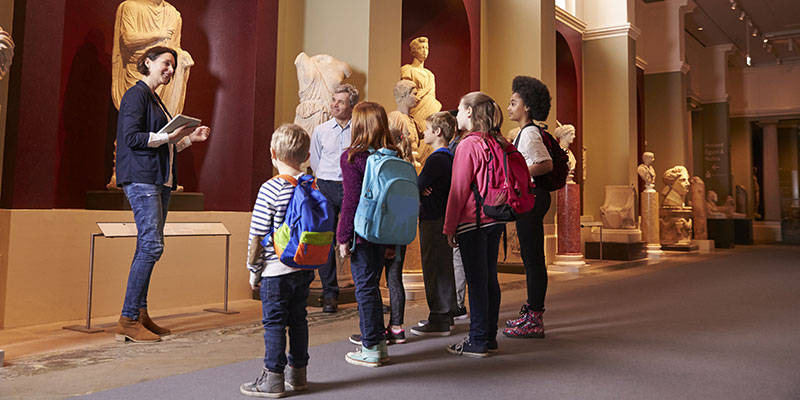The Education Endowment Foundation: Children’s University
This is one of a series of case studies to accompany our Insight brief on schools, attainment and the role of higher education. It highlights an example of a successful partnership between schools, higher education providers and other organisations.

The Education Endowment Foundation (EEF) is a charity focused on improving teaching and learning, particularly for socioeconomically disadvantaged pupils, through better use of evidence. It does this by conducting thorough reviews of existing evidence from across the globe and synthesising the key messages in a way that is easily digestible for busy teachers. It also commissions new research to identify education programmes and approaches with the potential to accelerate progress.
Since 2011, it has funded over 200 independent evaluations of different teaching and learning approaches. One of these is Children’s University, a programme that aims to improve the attainment and aspirations of primary pupils by supporting schools to provide a range of learning opportunities outside of the school day.
The EEF funded an independent evaluation of Children’s University because it wanted to find out whether extracurricular activities can help to improve pupil attainment as well as other attitudes and skills, such as motivation, confidence, and teamworking. These attitudes and skills can play an important part in shaping an individual’s outcomes, but less is known about how these behaviours and attitudes can be improved and whether any improvement can lead to gains in academic attainment.
The trial of Children’s University aimed to address some of these questions. Over 2,500 pupils in Years 5 and 6 in 68 primary schools took part. The EEF evaluated the programme through a randomised controlled trial: half of the schools taking part were randomly allocated to receive Children’s University, while the other half were assigned to the control group.
Children in the group of schools receiving Children’s University were allowed to choose which activities they wanted to attend. These included trips to destinations like libraries and museums as well as after-school clubs and sports activities. Participation was rewarded through credits, certificates, and a ‘graduation’ event.
The independent evaluators from Durham University looked at the impact that taking part in Children’s University had on pupils’ reading and maths scores in Key Stage 2 tests. Through attitude surveys, they also investigated whether taking part influenced other outcomes like ‘teamwork’ and ‘social responsibility’.
The trial found some evidence that pupils who took part in the Children’s University programme made slightly more progress in reading and maths than the pupils in the control. They also found that children who took part made small additional gains in teamwork and social responsibility.
This was an efficacy trial, which tested whether the intervention could work under ideal conditions. These findings provide initial evidence that well supported enrichment activities have the potential to improve children’s academic and non-cognitive outcomes.
The EEF believes that it is important to retrial programmes that show promise, to find out whether findings can be replicated across many schools. It has therefore commissioned a second trial of Children’s University that will help to understand whether the programme is effective in raising attainment and improving other outcomes under everyday conditions. Around 150 primary schools are taking part in this trial, and the findings are expected to be published in 2023.
Describe your experience of using this website
